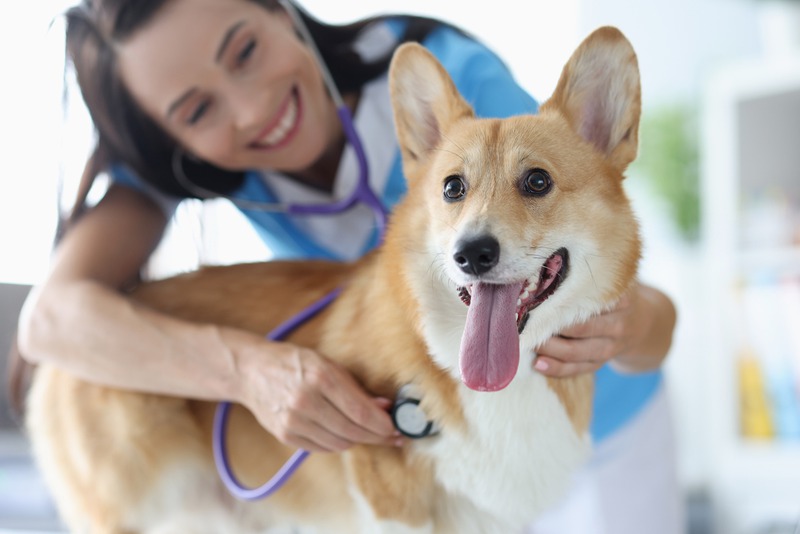Watching our furry friends go through surgery is never easy. Once the procedure is over, it’s up to us to make sure their road to recovery is smooth and comfortable. Proper post-surgery care is crucial for your pet’s health and swift recovery. Whether it’s your seasoned feline or your sprightly pup, knowing how to care for them after surgery can make all the difference. So, let’s talk about how you can help your beloved pet bounce back to their happy, tail-wagging selves.
Setting Up a Comforting Recovery Space
First things first, your pet needs a quiet place to rest and recuperate. Your pet might be a bit groggy after undergoing anesthesia, and a peaceful spot will help them to sleep it off. Here’s how to make it perfect:
-
Choose a quiet room away from the hustle and bustle of the household.
-
Ensure the bedding is soft and clean, and change it regularly to keep the area hygienic.
-
Maintain a comfortable temperature—your pet should be neither too hot nor too cold.
-
Keep their most loved toys close, but remove anything that might encourage strenuous activity.
Understanding Their Medication Needs
Post-surgery, your vet will likely send your pet home with medication for pain relief or to prevent infections. Here’s what to keep in mind:
-
Administer medications exactly as prescribed. Skipping doses or over-medicating can harm your pet.
-
Keep track of dosing times—setting reminders on your phone can be a lifesaver.
-
Hide pills in their food or use special pill pocket treats if they’re a bit stubborn.
Monitoring Their Eating and Drinking
Your pet might not have much of an appetite once they get home. That’s normal, but keeping an eye on their consumption is important. Here are some tips:
-
Offer small amounts of food and water at first. Their tummy might be sensitive after surgery.
-
If their usual diet isn’t appealing, ask your vet for recommendations on palatable options for post-surgery recovery.
-
Keep fresh water available all the time. Hydration is incredibly important for healing.
Keeping an Eye on the Surgical Site
Inspecting the surgical area daily is important to catch any signs of infection or complications early. What should you look for?
-
Redness, swelling, or discharge that gets worse over time could indicate an infection.
-
Make sure your pet isn’t licking or biting at their stitches or staples. A protective collar might be necessary to prevent them from causing any damage.
-
Follow your vet’s instructions for wound care. This might include cleaning the site or applying ointments.
Managing Mobility and Exercise
Taking it easy is the name of the game post-surgery. Even if your pet feels better, too much activity can disrupt healing. So, how can you handle a pet with too much pep?
-
Limit their movements to short, leashed walks if they need to go outside.
-
Use baby gates or close doors to prevent them from using stairs or jumping on furniture.
-
Keep playtime low-key. Now’s not the time for fetch or vigorous tug-of-war.
Understanding Follow-Up Care
Going back to the vet for a post-surgery check-up is non-negotiable. Your vet will want to make sure that healing is on track and that your pet’s recovery is going as planned. Don’t skip these appointments—they’re key to your pet’s health.
The Role of Dental Health for Pets in Recovery
Did you know that dental health care for pets plays a role in post-surgery recovery? Dental issues can affect the whole body, so keeping your pet’s mouth clean is essential. Here’s how:
-
Keep up with regular dental routines as approved by your vet. Avoid hard treats or toys if your pet has had oral surgery.
-
Watch for any signs of oral discomfort, such as reluctance to eat or bad breath, which could indicate a problem.
-
Discuss a dental health care routine with your vet for post-surgery. A healthy mouth can promote overall healing.
Finding the Right Animal Surgery Clinic
Having confidence in where you take your pet for surgery and follow-up care is essential. If you are in Georgia, finding an animal surgery clinic in Doraville, GA, that emphasizes post-operative care is paramount to your pet’s recovery.
Importance of Vaccination
Vaccinations play a big role in your pet’s health, even more so after surgery when their immune system might be compromised. Understanding what booster shots for dogs can do will help you keep your canine companion protected as they heal.
-
Stay on top of your dog’s vaccination schedule. Speak to your vet about any additional vaccines that may be necessary post-surgery.
-
Booster shots can help protect against diseases, which is especially important when your dog’s immune system is weaker.
-
Discuss the timing of these shots with your vet, as some may need to be delayed until full recovery.
Final Thoughts
Seeing your pet go through surgery can be tough on the heartstrings, but knowing you’re providing the best post-surgery care makes the process easier for both of you. Remember to create a healing environment, manage their medication and diet, keep the wound clean, limit physical activity, and maintain routine vet appointments. As your furry friend heals, you’ll be glad you took these steps to ensure a smooth recovery. And before you know it, your four-legged pal will be back to their playful and loving self, all thanks to your attentive care.


